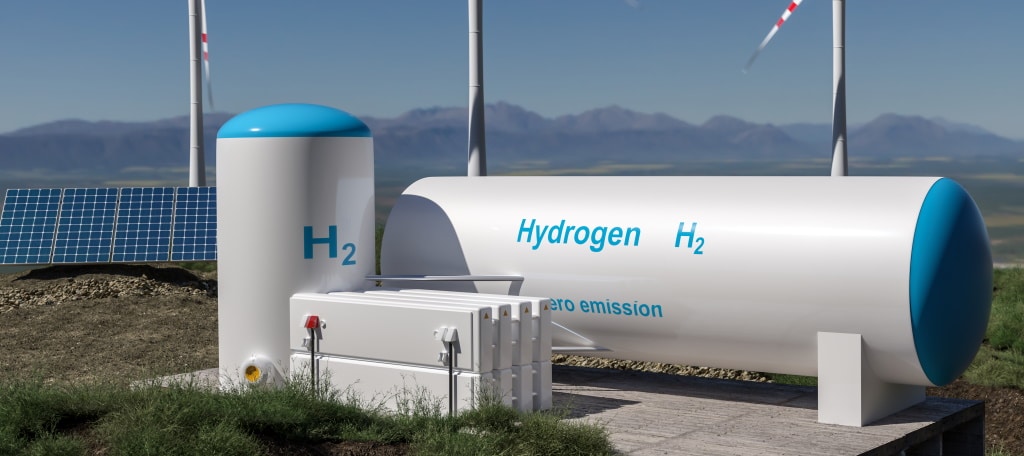After Kenya and Egypt, Fortescue Future Industries (FFI) is continuing its negotiations in southern Africa. In South Africa, the subsidiary of the Australian group Fortescue Metals has just signed a “non-binding agreement” with African Rainbow Energy and Power (AREP), a company owned by businessman Patrice Motsepe that trades in gold, platinum, iron, copper and coal and is increasingly buying shares in renewable energy projects.
Through the tie-up with Arep, FFI wants to explore investment opportunities in the green hydrogen industry in South Africa. “After identifying a suitable business case, African Rainbow Energy and FFI will negotiate the terms of a binding joint development agreement,” says the Australian company.
Green ammonia production in Namibia
This partnership is announced at a time when international investors are increasingly interested in the South African green hydrogen market and its products. This is the case for Saudi energy company Acwa Power, which wants to invest $10 billion in partnership with South Africa’s Industrial Development Corporation (IDC) over the next few years.
Read also- NAMIBIA: Hyphen to sell green ammonia to two industrial groups, including Approtium
For its part, Hive Hydrogen, the subsidiary of the British company Hive Enegy, has begun talks with Eastern Cape officials to invest $6 billion in green hydrogen in Nelson Mandela Bay, a metropolitan municipality on the shores of Algoa Bay. It is in this context that FFI and Arep wish to position themselves in this developing industry, which is also of interest to the South African chemical giant Sasol.
Investment in Daures Green Hydrogen Village
Fortescue has also decided to set up shop in Namibia. In this southern African country, the Australian company has signed a memorandum of understanding with Enersense Energy Namibia (EEN) in order to study the possibility of collaborating on the development of Daures Green Hydrogen Village, in the Erongo region. The first phase of the project will see the deployment of 1 MW of installed renewable energy capacity, which will be converted into hydrogen in a 500 kW electrolyser.
The by-products will be used to power a vegetable greenhouse and various agricultural research projects in partnership with the University of Namibia and the University of Stuttgart in Germany. But this capacity is expected to increase over the next few years. “The Daures Green Hydrogen Village Phase 1 plans have the potential to provide over 50 sustainable jobs and 100 temporary jobs during construction, and will produce Namibia’s first batch of green hydrogen, green ammonia and carbon-free agriculture. The village intends to be the first carbon neutral community in Africa and has the potential to produce over 1 GW of renewable energy and over 350,000 tonnes of ammonia,” says Jerome Namaseb, CEO of Daures Green Hydrogen Village.
Jean Marie Takouleu
